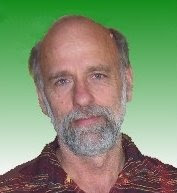
SHAKE HANDS WITH THE DEVIL: The Journey of Roméo Dallaire (Peter Raymont, Canada, 2005, 91 m). THEMES: PTSD; MORAL ISSUES IN THE MILITARY. Roméo Dallaire, a French Canadian career soldier, a lieutenant general in the Canadian Army, was sent to head up the UN peacekeeping mission in Rwanda in early autumn, 1993. (the sympathetic UN military officer portrayed by Nick Nolte in the film Hotel Rwanda is loosely based on Gen. Dallaire.) He stayed at his post through the 100 day genocidal disaster in the spring of 1994, unable to stem the slaughter of 500 to 800 thousand people (although his tiny force was responsible for saving about 25,000). He was psychologically devastated by this experience and suffered for several years from suicidal depression, alcoholism and post-traumatic stress disorder.
.
Dallaire eventually retired from the army and has attempted more recently to put his life together again. This film, a documentary/memoir based on his 2003 book, “Shake Hands With the Devil: The Failure of Humanity in Rwanda,” is part of that effort.The film and book tell Gen. Dallaire’s personal story of Rwanda and its aftermath. For more details about the Rwandan tragedy, go to my other website,
AtkinsonOnFilm.com, and access my review of this film under current cinema.
.
By the end of the genocidal slaughter, Dallaire had become almost unable to function, issuing orders and dictating memoranda that were incoherent, according to his executive assistant at the time, Major Brent Beardsley. This most likely represented some mixture of acute stress disorder and depression. But beyond that immediate period, Gen. Dallaire was broken by the Rwandan experience, blaming himself for not finding an approach that would have succeeded in mobilizing UN support from higher ups to prevent or stop the killings. For the next several years he suffered from prolonged depressive episodes and heavy drinking, and needed to be hospitalized at one point. Medications now stave off most depressive symptoms. But he continues to suffer from symptoms of PTSD: severe survival guilt and distressing, incessant images (flashbacks) of the carnage in 1994.
With his depression stabilized and his sobriety now restored (I infer the latter because he is the only one drinking orange juice at a recent reunion of his UN Rwanda staff shown in the film), Dallaire then wrote his memoir, entered into this film project and recently attended the 10th anniversary gathering in Kigali, honoring the dead and their surviving families. He was welcomed as a hero, a label he rejects, by the Rwandan President and addressed a crowd in the same stadium where his soldiers had sheltered 12,000 people 10 years earlier. Such steps can be seenn as excellent reparative efforts to reduce his residual guilt and proneness to depression.
.
Today, among other projects, Gen. Dallaire serves as a consultant to various entities concerned with preventing PTSD. This film is almost unique in portraying chronic stress disorder in a military leader, based at least in part on his sense of moral responsibility for not being able to do more. Rarely are high ranking officers willing to disclose so much publicly, even after retirement. Grade B (overall film quality); A- (for the unusual view of PTSD in a military leader. (10/05)
.
Dallaire eventually retired from the army and has attempted more recently to put his life together again. This film, a documentary/memoir based on his 2003 book, “Shake Hands With the Devil: The Failure of Humanity in Rwanda,” is part of that effort.The film and book tell Gen. Dallaire’s personal story of Rwanda and its aftermath. For more details about the Rwandan tragedy, go to my other website,
AtkinsonOnFilm.com, and access my review of this film under current cinema.
.
By the end of the genocidal slaughter, Dallaire had become almost unable to function, issuing orders and dictating memoranda that were incoherent, according to his executive assistant at the time, Major Brent Beardsley. This most likely represented some mixture of acute stress disorder and depression. But beyond that immediate period, Gen. Dallaire was broken by the Rwandan experience, blaming himself for not finding an approach that would have succeeded in mobilizing UN support from higher ups to prevent or stop the killings. For the next several years he suffered from prolonged depressive episodes and heavy drinking, and needed to be hospitalized at one point. Medications now stave off most depressive symptoms. But he continues to suffer from symptoms of PTSD: severe survival guilt and distressing, incessant images (flashbacks) of the carnage in 1994.
With his depression stabilized and his sobriety now restored (I infer the latter because he is the only one drinking orange juice at a recent reunion of his UN Rwanda staff shown in the film), Dallaire then wrote his memoir, entered into this film project and recently attended the 10th anniversary gathering in Kigali, honoring the dead and their surviving families. He was welcomed as a hero, a label he rejects, by the Rwandan President and addressed a crowd in the same stadium where his soldiers had sheltered 12,000 people 10 years earlier. Such steps can be seenn as excellent reparative efforts to reduce his residual guilt and proneness to depression.
.
Today, among other projects, Gen. Dallaire serves as a consultant to various entities concerned with preventing PTSD. This film is almost unique in portraying chronic stress disorder in a military leader, based at least in part on his sense of moral responsibility for not being able to do more. Rarely are high ranking officers willing to disclose so much publicly, even after retirement. Grade B (overall film quality); A- (for the unusual view of PTSD in a military leader. (10/05)



No comments:
Post a Comment